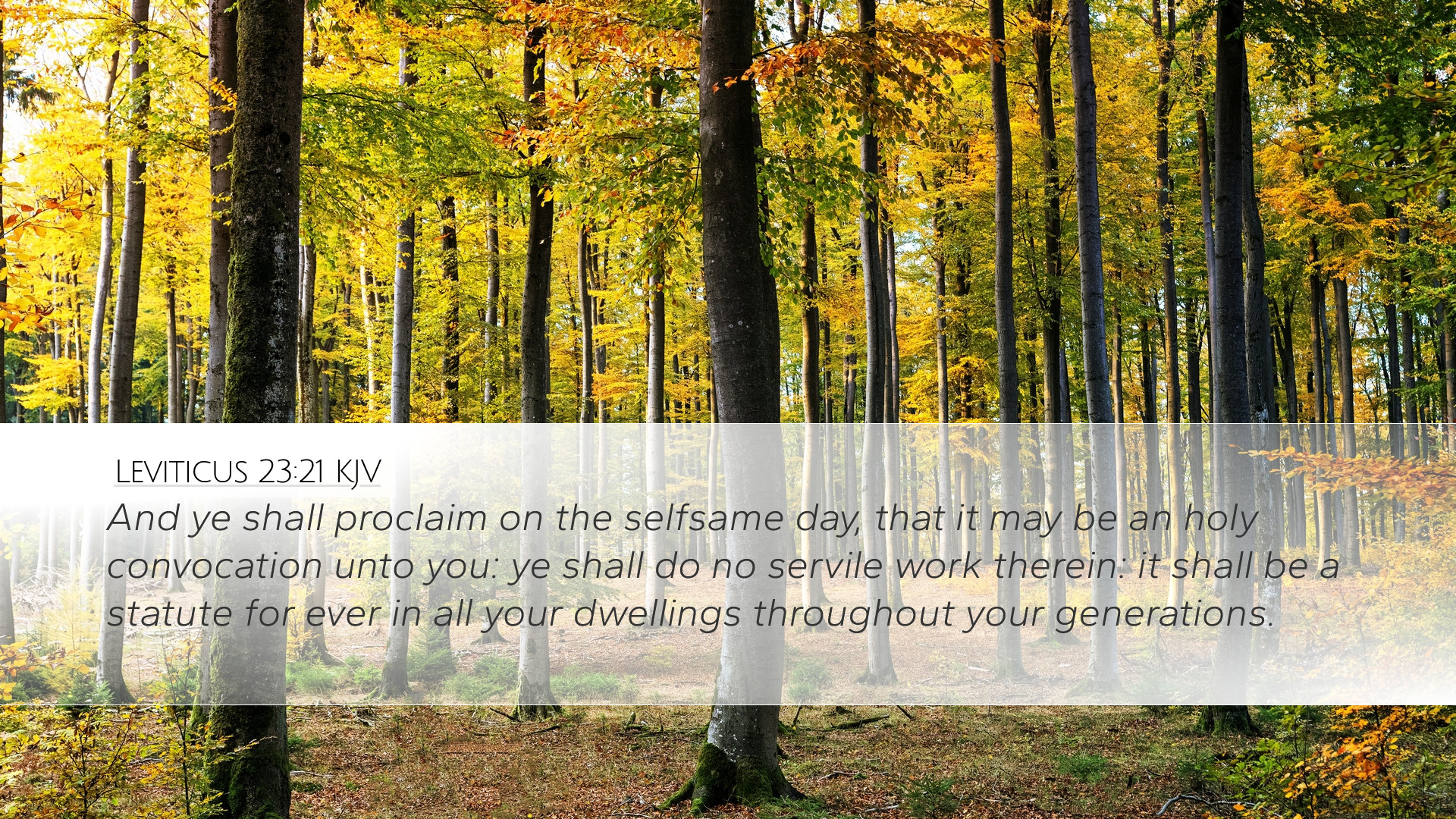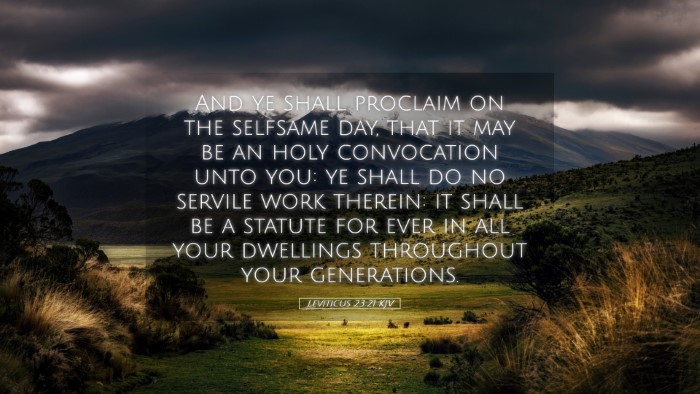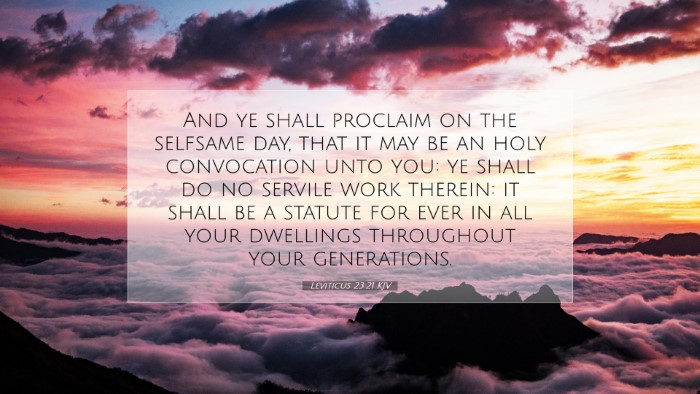Commentary on Leviticus 23:21
Leviticus 23:21 states: "And you shall proclaim on the same day that it is a holy convocation. You shall do no customary work on it. It shall be a statute forever in all your dwellings throughout your generations."
Transition from the Old Testament Practices
This verse points to the practice of holy convocations, which was deeply rooted in the Old Testament ceremonial laws. It underscores the importance of establishing dedicated times for worship and remembrance in a believer’s life. As Matthew Henry notes, these holy days were not merely for rest but served to turn the community’s focus towards God.
The Significance of Holy Convocation
-
Spiritual Gathering: The term "holy convocation" implies an assembly set apart for divine purposes. Albert Barnes emphasizes that these gatherings were intended for communal worship, fostering unity among the people and fostering a collective focus on God’s sovereignty and providence.
-
Divine Instruction: Adam Clarke points out that these events were opportunities for instruction in God’s law, thus promoting a deeper understanding of His will and commandments among the people.
-
Remembrance of God's Acts: The feasts generally commemorated significant redemptive acts of God. Each celebration allowed the Israelites to remember God's provisions and faithfulness throughout history.
Work and Worship
The directive to abstain from "customary work" during these holy convocations speaks to the importance of prioritizing spiritual activities over daily labor. Matthew Henry reflects on this, suggesting that ceasing from work symbolizes a devoted time for engaging fully in worship, which should take precedence in the lives of believers.
The Everlasting Nature of God's Statutes
The phrase "a statute forever" emphasizes the enduring nature of God's commandments. This principle is reiterated by all three commentators, who highlight the relevance of these commandments not only for the Israelites but as a model for future generations. Albert Barnes particularly notes that while the ceremonial laws are fulfilled in Christ, the underlying principles of dedication, remembrance, and worship remain relevant.
Implications for Modern Believers
-
Setting Aside Time: Just as the Israelites were commanded to dedicate specific times for worship, modern Christians are challenged to prioritize their time with God and community, recognizing the importance of rest and reflection in their spiritual lives.
-
Collective Worship: The call for community gatherings reflects an essential aspect of church life today. Engaging with fellow believers in worship helps to build one's faith and provides a collective witness of God's goodness.
-
Remembrance and Teaching: Churches today should emphasize the teaching of God’s Word during these gatherings, ensuring that members understand the foundations of their faith, much as the Israelites did during their annual feasts.
Concluding Thoughts
Leviticus 23:21 serves as a powerful reminder of the sacred rhythms of life that God established for His people. In highlighting the necessity of holy convocations, abstention from work, and the enduring nature of God's statutes, this verse calls both pastors and laypeople alike towards reflective practice and deeper communal worship. As believers engage with God's Word and community, they participate in a tradition that, while historically grounded, continues to lend itself to profound spiritual truths for the church today.


